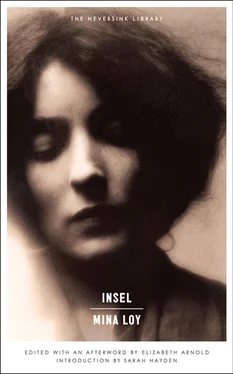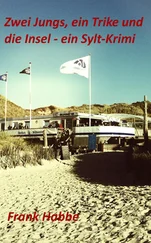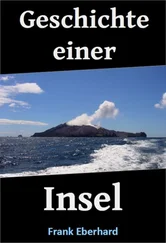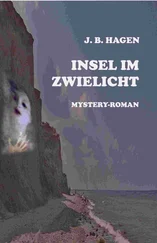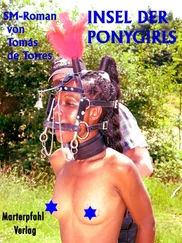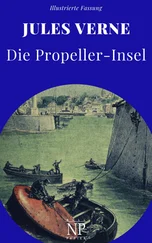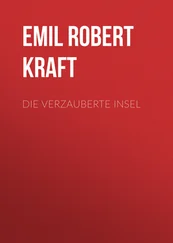Anything he perceived sufficiently to accept or that thrust itself upon his attention (as in my case) was instantly distilled in his precious essence. Behind his brow a void wraith, glorified, evaporate, dissociated from its originator, myself, to mix with his gaseous cerebration.
Insel let out a shrill crow. “ Es gibt nicht zwei vie Sie —There are not two like you.”
Sparkling, entranced, he sat on his wooden chair as on the throne of the conquistador, for whatever I contributed to his transcendental enjoyment he was loath to let me go.
But I was beginning, myself, to feel unnatural. I distinctly detected my voice in ventriloquial emulation echo the wistful, surf-like swooning singing of his— “Sterben — Man mu-u-uss — Man mu-u-uss” —as, worn out with pain, assuring him I must leave because I was tired, I said, “ Ich bin so mü-ü-de .”
Insel, responding to this bemused inflection, or rather, fusing with an ululation so singularly his own it almost obliterated our duality, I witnessed in him an inconceivable reversion of a standard transmutation. The changing of sadism into love . Not gallant love. The indiscriminate love of a savior.
Suffering, I had so gratified him, satiating his sadism — even to extinction, his gratitude refluent to me, enveloped me.
At last with a sacrificial decisiveness Insel consented to let me go. “ Ja ,” he assented, bending over me in solicitude. “Go,” he stretched out one of his thin branches in benediction, “Go and sleep.” “ Schlafen .” His word was drowsy — so long drawn out. It did not cut the air as ordinary words do. Agelessly sailing, it passed across me — oblong and idle — spacious as an airship, its narcotic cargo a dream of a slumber unknown to normal man.
The rays that Insel so busily had been spinning around himself in an immeasurable tenderness released, attained once more to me.
Instantly all pain vanished. I sprang up elasticized. To an identical rhythm Insel and I, on a buoyancy, were danced toward the door bobbing and smiling good-bye in a mutual appreciation which I felt must be glittering off me as it did off him.
When I got to the train it was steaming out of the station; casually I skimmed onto it scarcely noticing this, for me, at other times, impossible achievement — I felt so airy. In the car, whenever I thought of Insel, I was shaken with a helpless laughter — a strange mixture of extreme friendliness and, inexplicably, derision.
The painless buoyancy lasted well into the night when, as I sat calmly at work in my hotel bedroom, I unexpectedly disintegrated. My body, which had hitherto made upon itself the impression of a compact mass, springing a multiplicity of rifts, changed to a fractional covering I can only compare to the spines of a porcupine; or rather vibrant streamers on which my density in plastic undulation was being carried away — perhaps into infinity. A greater dynamism than my own rushed in to fill the interstices. Looking down at myself I could see my sensation. The life-force blasting me apart instead of holding me together. It set up a harrowing excitement in my brain. An atomic despair — so awful— my confines broke down. I lost contour. Once more I found myself in the “impossible situation” in which one cannot remain — from which there is no issue.
I cognized this situation as Insel’s. A maddening with desire for a thing I did not know — a thing that, while being the agent of his — my — dematerialization alone could bring him together again. A desire of which one was “dead” and yet still alive — radial starfish underpattern of his life, it had communicated itself to me. I was being impelled to the pitiable serial choreography of Insel when in the closed cab he had chased himself along the incalculable itinerary of his dissolution.
In a darting anguish consciousness in pulverization peered from the ends of incontrollable antennae for something unattainable.
I had more space than had Insel in his cab, yet the in-slanting facade of my room under the eaves with the red glow of its wall paper got “in my way.” Having no idea of what was happening to me, I seemed to have also unsuspected reserves of will power. I put up a pretty good fight against this incredible dematerialization — it took me hours to weave myself together — but at last, exhausted yet once more intact, I fell upon my bed and slept.
Next morning my face looked “destroyed” like Insel’s.
Although I was all of a piece, my very bones were weak. I had to walk carefully. I found out why, when climbing slowly up the hill to the station to buy a newspaper, I was cleft in half. Like the witch’s cat when cut apart running in opposite directions, suddenly my left leg began to dance off on its own. Thoroughly frightened at this bisectional automatism, I somehow hopped to the fence on my right and clung to it in an absurd discouragement.
The day after that I thought I was normal. Walking serenely at my habitual pace, I went to a shop in the village before keeping an appointment for lunch.
Without association (as usual) the idea of Insel rose in my mind. Quite different to thinking about someone. I was overcome with that imbecilic self-satisfied laughter, that Parnassian guffaw. It had nothing to do with any humor known to the intellect; being a sort of blank camouflage for all intellection. With me it was always filtered with a faint derision. But even this derision I took for granted. Brought to a halt under the full force of my mental hilarity, I felt constrained to continue to share if — with what? — with whom? To do so I turned sideways. Whenever this idea of Insel occurred I could not go straight ahead — I had to turn to it — as when I had tried to sum him up on the Boulevard.
My feet remembered that lightness, that skimming of the pavement — I was engrossed in a merriment beyond existence. When this merriment ceased, I found myself in a part of the country I had never seen before.
I had kept track of the time to avoid being late— as that gust of laughter caught me it had been twenty to one. I walked into an open yard where a man was washing a car. He informed me it was twenty to one and that it would take me half an hour to get back to the place where by all the laws of possibility I should still have been. He allowed me to telephone my friends, to begin lunch without me, that I had got lost — at the other end of the wire it was twenty to one.
All this was comparable to an incident that occurred when I made friends with a little girl whose intelligence was like a jewel in a case too tightly closed. A backward child, one of those partial imbeciles, who, not being “all there,” showing only half their human nature, are either angelic or diabolic. Probably their own halves are all they respond to in other people, for Fifi, when she said “Bonjour” with a smile of benediction, would discover, “Madame, you are as sweet as a rose.”— “Monsieur, you are bright as gold.” Her being subnormal lent an elfin prestige to her slow serenity among her associates, offspring of peasants and small tradesmen, who attended the informal court she held in the parlor behind her parents’ shop.
Rigid as bygone queens in her orthopedic corset, she accepted the offering of every conceivable kind of toy duck from her wondering courtiers, with a lunar giggle that never precisely applied to anything. Her passion, her concretion of sublimity, took the form of a duck. “God is playing hide-and-seek,” she would announce, “so the Virgin Mary has married a duck and they live in the top story of the Riviera.” And once when I found her watching some live water fowl by a pond in a farmyard— “Why do you love the duck?” I asked her. “ Il dort dans son dos ,” she perfectly replied.
Читать дальше
